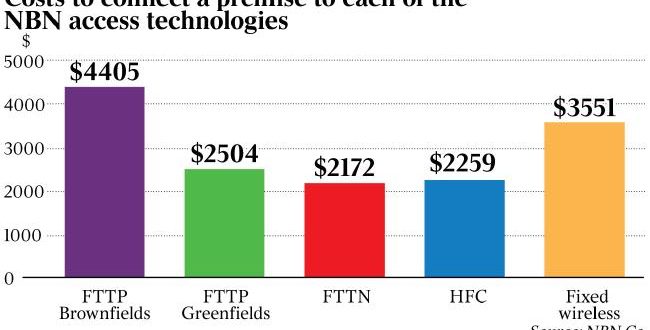Tasmanian telco Launtel is about to flick the switch and make Launceston Australia’s first gigabit city, allowing local businesses to exploit the capabilities delivered over the fully fibred part of the National Broadband Network.
Launtel is using the NBN’s fibre-to-the-premises footprint, which extends across the city, to offer interested parties 1000 megabit per second (Mbps) speeds at commercially viable rates. For businesses in the city, the speed and quality of the service on offer would rival what’s available in Singapore, Hong Kong and Japan.
The telco’s founder, Damian Ivereigh, said the full-fibre footprint of the NBN might have been cut short in Tasmania and around the nation but it was incumbent on operators to make the most of the technology.
“The fibre has always been ready for gigabit services and we are looking to get it to customers who the bigger players aren’t looking to serve,” he said.
However, it’s a model that Launtel can’t replicate across the rest of Tasmania, given the Coalition government’s decision to replace the full-fibre approach with a multi-technology one.
Launceston and Hobart were Australia’s first cities to be turned on to the original pure-fibre network.
NBN Co senior executives told a Senate estimates committee last week that the average FTTN speed currently sits at 68Mbps and confirmed that the majority of NBN customers that Telstra is compensating for poor service are on the FTTN service that relies on copper.
Mr Ivereigh said that while he understood the motivation of the Coalition government, the change in direction had delivered a bad outcome for Tasmania. “There was a lot of fibre rolled out around Launceston and Hobart but Davenport and Burnie got put on fibre to the node,” he said. “It was a poor decision and the trouble with technology is it moves so fast. Rolling out fibre takes longer but once done there’s so much long-term benefit.”
Mr Ivereigh said that NBN Co’s wholesale pricing model was getting better. Launtel is negotiating network availability through NBN Co and TasmaNet to provide its Blue Ocean Gigabit connections and Mr Ivereigh said that the company was happy to absorb the Connectivity Virtual Circuit (CVC) charge, which is set to fall on June 1.
“They give you a discount based on how much bandwidth you allocate to a customer, so the more you allocate to a customer the cheaper the final price will be,” he said.
Launtel’s service won’t be cheap but Mr Ivereigh is confident that small to medium business will see the value proposition that fibre delivers. He’s aiming to get the services to Hobart over time. “We will need about 30 businesses to sign up before we turn on the tap.”
While he can’t extend Launtel’s limited footprint beyond the two cities in Tasmania, Mr Ivereigh is hoping the promise of super-fast internet will attract companies from the mainland to set up shop in Tasmania.
“It’s hard to overstate just how transformational this can be for Launceston and Tasmania.”
Reader comments on this site are moderated before publication to promote lively and civil debate. We encourage your comments but submitting one does not guarantee publication. We publish hundreds of comments daily, and if a comment is rejected it is likely because it does not meet with our comment guidelines, which you can read here. No correspondence will be entered into if a comment is declined.





